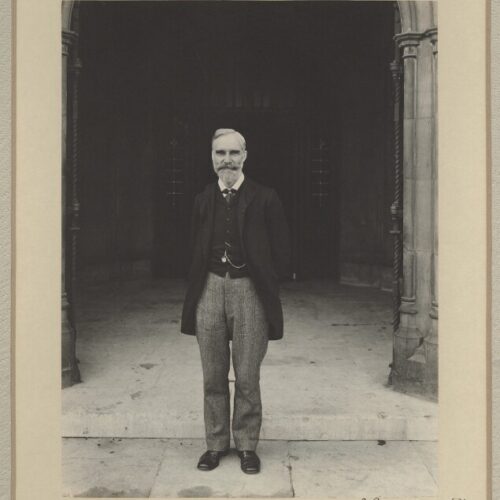

The London Ethical Society was the UK’s first, founded in 1886 to pursue ‘a rational conception of human good’: establishing an ethical system rooted in reason and aimed at social reform. The Society’s founding figures were civil servant James Bonar, philosopher J. H. Muirhead, and Liberal Party politician John Murray Macdonald, all of whom were inspired in part by the applied philosophies of Edward Caird in Glasgow and T. H. Green at Oxford.
The twin humanist values of rationality and compassion underpinned the LES and all of the ethical societies which followed, as well as the Union of Ethical Societies (now Humanists UK) when it was formed in 1896.
There are many who recognise the inherent worthiness of the life commonly regarded as good and noble, but who consider the motives, commonly assigned for pursuing it, unworthy and inadequate.
The first meeting of the London Ethical Society took place on 8 June 1886. From its earliest days, the group’s focus was on education, and on ethical principles applied to social reform. Many members were also involved in schemes like University Extension, Working Men’s Colleges, and University Settlements, all designed to increase access to higher education. The society’s expressed intention was to ‘organise systematic Ethical Instruction,’ in partnership with these existing institutions (and others). A statement prepared in September of that year outlined their ideals:
The Members of this Society agree in believing that the moral and religious life of Man is capable of a rational justification and explanation. They believe that there is at present great need… for the exposition of the actual principles of social morality,… for the presentation of the ideal of human progress, and… for the teaching of a reasoned out doctrine on the whole subject.
These ideals of practical morality, community feeling, and social reform, all arising from reason and compassion, underpinned every subsequent ethical society.
‘Morality and Modern Life’
In line with their educational aims, the London Ethical Society organised a series of lectures commencing in November 1886 at Toynbee Hall, entitled ‘Morality and Modern Life’. These included: J.H. Muirhead on ‘Evolution and Morality’; Sophie Bryant on ‘The Unity of Social and Individual Aims’; Professor J. E. Carpenter on ‘Religion without God’; and Anna Swanwick on ‘Poets and Poetry as Moral and Spiritual Teachers’. Read together, these lecture titles give a clear sense of the concerns uniting the LES: science, morality, social reform, non-theological ethics, and the role of literature and the arts. Toynbee Hall hosted the lectures until 1888, when in October they re-commenced at Essex Hall, Strand, where they were given until 1897.
Like other ethical societies after it (most notably Stanton Coit’s ‘Ethical Church’), the LES redefined the ‘religious’ as anything ‘directed towards the purification and elevation of the ideal of Human Life’, removing the need for gods. With the ‘breaking up of older modes of thought and feeling’, the society felt, came the need to recognise that ‘the moral life is not a bondage imposed from without, but is only another name for man’s proper freedom’. For the LES, and all those that followed, this meant making moral decisions and advocating for social change without any reference to supernatural beliefs or ideas of divine punishment or reward. This was rooted in a sense of responsibility for one another, and for the wider community:
In practice it is to be realised by accepting and acting in the spirit of such common obligations as are enjoined by the relationships of family and society.
‘Universal principles of well-doing and well-being’
The society acknowledged the influence of scientific developments on traditional religious faith, and anticipated the seeking for alternative moral structures by those who no longer felt at home in the Church. In many ways, this preempted criticisms (still experienced by non-believers today) from those who believe that disbelief in God signifies a lack of belief in anything. ‘The allegiance of such persons to the higher moral life’, wrote the committee, ‘has been claimed on the ground of external and often arbitrarily selected sanctions. But now that their reverence for these has been undermined by the necessary progress of thought, their reverence for goodness itself is likely to suffer.’ Education and moral instruction were therefore of absolute importance from the beginning:
[The London Ethical Society] does not propose, as has been thought, to found a new religious worship. It merely aims at disentangling what is distinctively moral from the more transient forms of doctrine and ritual in which it is embedded. At a time when these forms are being subjected on all hands to a critical and destructive analysis, it is felt that such a disentanglement is of supreme importance and is specially incumbent upon those who have the moral education of young people entrusted to them.
Over the subsequent decade, the London Ethical Society sought to put its ideas into practice. They delivered Sunday discourses and weekday lectures, founded a kindergarten, operated Boys’ and Girls’ Guilds, and held dances and concerts. Throughout these years, a number of ‘kindred societies’ sprung up around the country, including in London, Cambridge, Bradford.
The desire to found a School of Ethics and Social Philosophy arose from a feeling that the success of the previous years ‘justified the belief that the re-organisation and establishment on a more permanent basis of this [educational] branch of the Society’s work, would lead to valuable results.’ Members hoped to build on their work to extend university-level education to those who may not otherwise have access to it.
On 17 February 1897, a meeting was held at the home of William Swann Sonnenschein, attended by (among others) Sophie Bryant, Moncure Conway, Alice Woods, and Leslie Stephen. A committee was established to formulate plans and raise funds, composed of Bosanquet, Bryant, Stanton Coit, L. T. Hobhouse, Mary Gilliland Husband, Ellis Thurtell, and Muirhead. By October, the London School of Ethics was operating from the Passmore Edwards Settlement, with Bosanquet as president and Gilliland Husband as honorary secretary.
The School was relatively short lived, being dissolved in 1900 after financial challenges and a difficulty attracting the attendees they hoped to include. However, many of its members went on to be part of the London School of Economics, and their efforts had served to embody the values expressed by the London Ethical Society.
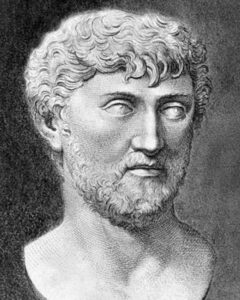
Titus Lucretius Carus was a Roman poet contemporary of Julius Caesar. Little is known of him apart from his name […]
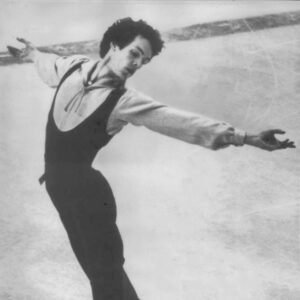
John Curry was an English figure skater celebrated for revolutionising the sport by combining athleticism with balletic artistry. Openly gay […]
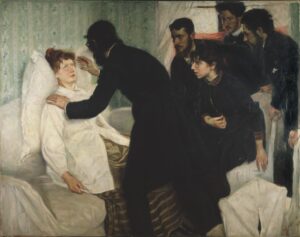
With all the pretensions of spiritualists… No great truth containing a benefit to humanity has ever reached us; no addition […]
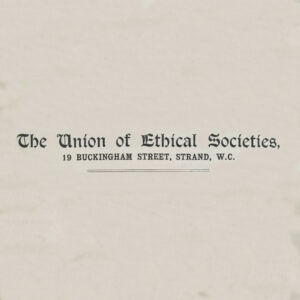
The Union of Ethical Societies (now Humanists UK) was formed in 1896, joining together existing ethical societies for fellowship and […]